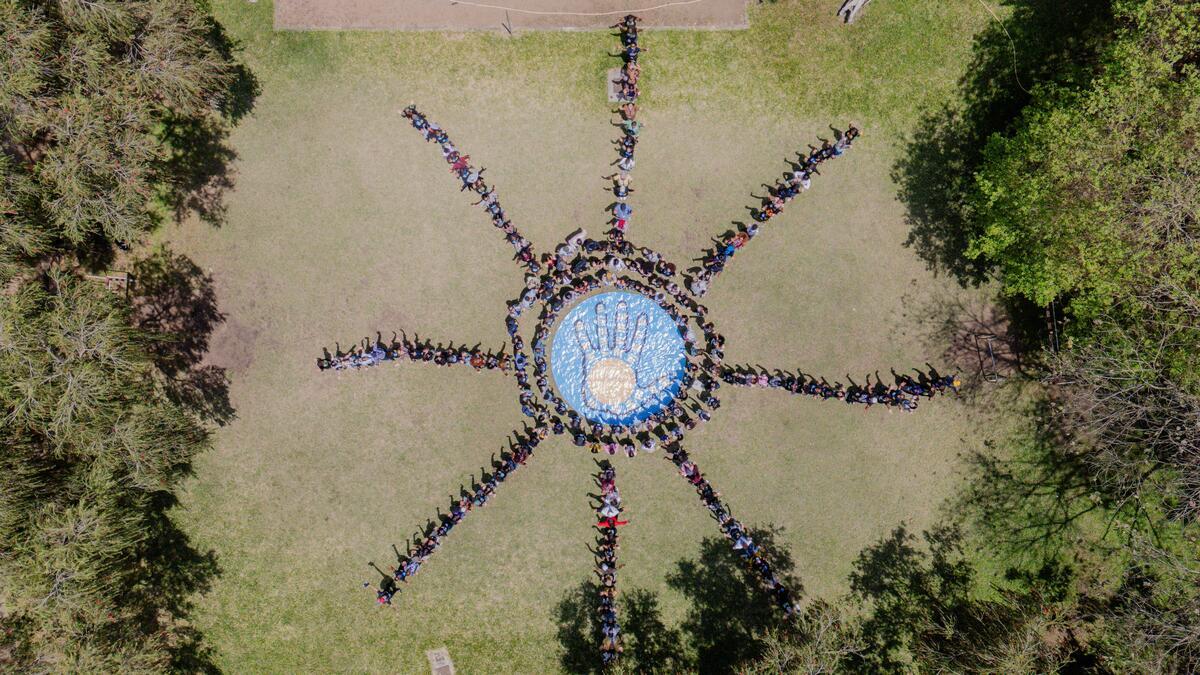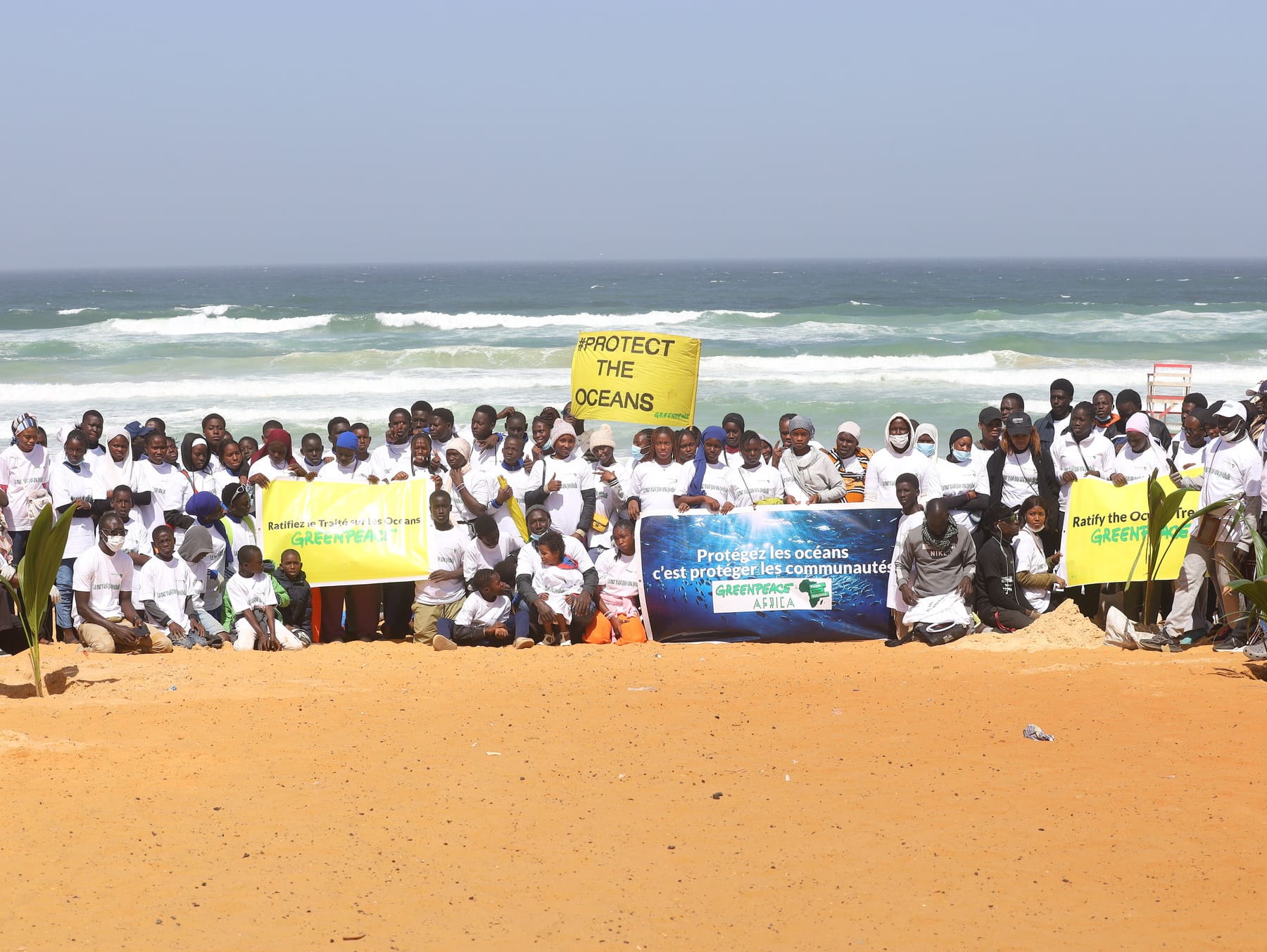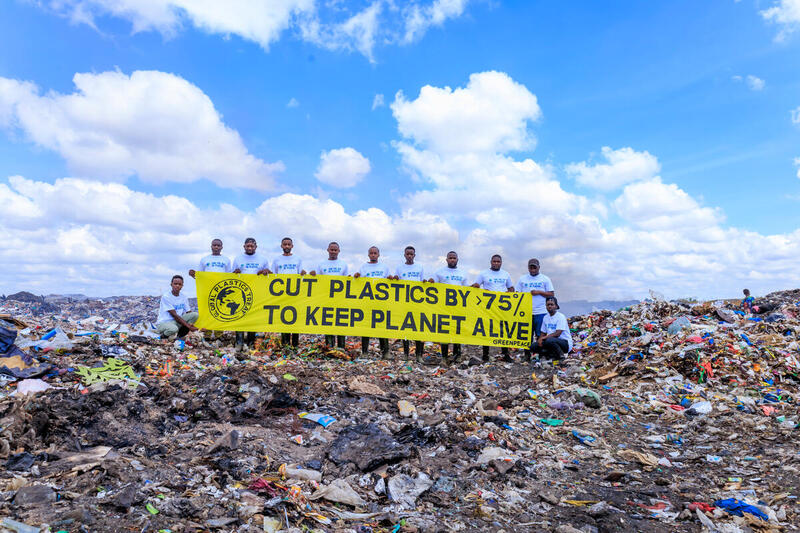Plastic free July is coming to an end and just like other years, I took on the challenge to stay away from plastic packaging, something that has proven to be a challenge in a country where there is so much unnecessary plastic packaging all around me.
Just like me, you may be in a similar predicament trying to make some lifestyle changes to avoid or reduce single-use plastic in your everyday life. While our individual daily efforts in reducing plastic pollution is critical and is a clear indication of a growing trend, it isn’t enough to solve the seemingly unending flow of plastic pollution into our world. The real culprits are the big polluters. It’s time to put pressure and hold the real polluters accountable for the mess they have created.
This plastic free July, we went beyond lifestyle changes and demanded that the world’s worst plastic polluters – Coca-Cola, Pepsi, Nestlé, and Unilever – switch to systems of reuse & refill. We are calling on the world’s top four plastic polluters to commit to 50% reuse & refill by 2030.
The world’s top polluters continue to use greenwashing tactics to keep selling their single-use plastic products, while claiming to be working hard to solve the pollution crisis. Their statements and their actions are inconsistent, and instead of providing solutions they are well within their means to provide, they continue churning out plastic waste at an unprecedented rate, promoting recycling as the solution to this crisis. In reality, this means that the burden of cleaning up the mess of these multinationals continues to fall on us as individuals.
It is estimated that only 9% of all the plastic waste ever produced has been recycled. With production projected to increase in the years to come, we will never be able to solve this crisis with waste management and cleanups. Reduction and reuse are crucial in tackling this global crisis.
Africa for instance has been grappling with the impacts of single-use plastics. In many of the urban areas in Africa, plastic waste is clogging the waterways leading to floods and destruction. Single-use plastic pollution is overflowing in Africa’s landfills. Oceans and rivers are filled with plastics. Waste pickers have been exposed to toxic substances harmful to their health from the burning of single-use plastic waste in garbage piles. If indeed recycling was enough to solve this crisis, after the many years we have been recycling, we would be seeing clean streets across Africa’s cities.
Scientists have found microplastics in the food we eat, the water we drink and even in human blood. While the overall effects are not yet known, microplastics are known to damage human cells; there are concerns they could affect immune function. To truly tackle this global crisis, we need to call on the biggest polluters and world leaders to step up and drive change.
In marking this year’s plastic free July, Greenpeace volunteers across different African regions went around their neighbourhoods sensitising retailers and wholesalers on the merits of using refill and reuse models while showcasing those who are already adapting to the new normal. From milk ATMs, cooking oil ATMs to water and grains refill stations, the refill and reuse system is slowly taking shape across Africa.
Greenpeace supporters across Africa acknowledge that while individual recycling efforts are part of the solution, they also understand the need for accountability where responsibility is lacking and have been echoing our calls for action from these top polluters.
Here are some comments from supporters on our social media platforms:
“Let these companies be warned, stop that plastic recycling myth and invest in reuse and refill
We are tired of these plastics being a threat to aquatic life”
“They need to bring back the deposit for the glass bottles make it compulsory to sell all beverages in refundable glass bottles plastic problem solved”
As we come to the end of plastic free July, we will continue to call on polluters to change their ways and invest in refill and reuse models. Won’t you add your voice by signing this petition to join the refill and reuse revolution.
Hellen Kahaso Dena
Communication and Story Manager




Discussion
Why companies converted to plastic packaging for their drinking products still confuses me. I was brought up in a plastic free society, all bottled products came in glass and had deposits for returning the empties to a retailer We had paper bags, glass bottles and almost no pollution in terms of plastic bags and bottles littering the streets, rivers and country side. The world was a much cleaner place
Thank you for sharing with us. This is genuinely disheartening; we need to go back to the old ways of the reuse and refill model.
Thank you for your comment. We need to go back to the sustainable method of reuse and refill model.
I have got a plan that would with immediate effect take out, about 50% of used plastics out of circulation. I will gladly share this plan with the relevant person at green peace. Please contact me
Thank you for reaching us. Kindly send us your queries to [email protected].
Please African Countries should adopt Kenyan plastic ban in totality it has worked pretty well in Kenya with unprecedented shocking outcomes
Thank you for your comment. Indeed, our African governments need to implement a permanent ban on single-use plastic products.
Forward with refill and reuse. Lets reclaim our environment now
We agree 💯!
Greed!! That’s what you have to overcome. The more money they make, the longer it’ll take to get the big4 to cut back on plastic production.
Let's collectively in each township create a recycling Factory, by the people and for the people. Let's make ourselves rich. Create incentives at consumer level of these single use plastic. Drive aware Ness campaigns on the money to be made. Pay a fair price p/kg of collected plastic. R & D on Google what methods to use to remanufacture used plastic items ie single use Plastics, bottles, polystyrene etc etc etc
Thank you for sharing with us. However, recycling will only make plastic manufacturers produce more plastic that the environment can not handle—leading us back to square one.